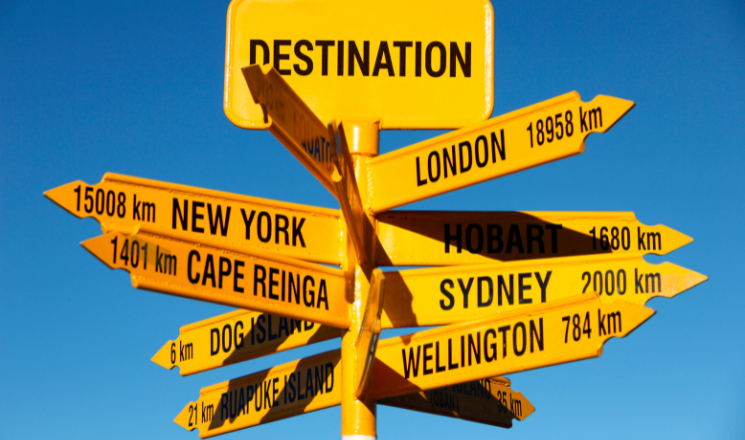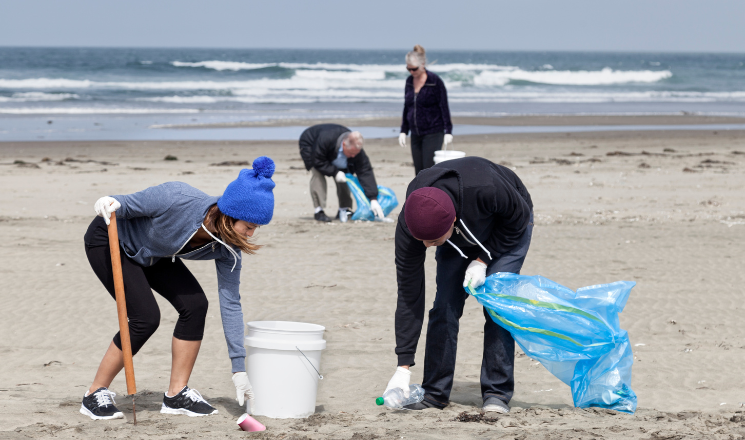Have you ever wondered whether your travels could do more good than harm? If so, you’re not alone. Today, sustainable journeys are more than a buzzword—they’re a movement that encourages responsible tourism and conscious exploration.
Although travel offers incredible experiences, it often comes with environmental and social costs. Fortunately, by making a few intentional choices, you can explore the world in a way that truly benefits people, places, and the planet. Let’s break down how you can make every trip genuinely matter.
Why Sustainable Journeys Are Essential Today

Let’s face it—tourism touches everything. While it fuels economies, it also strains local resources, generates pollution, and sometimes disrupts cultures. According to the UN World Tourism Organization, travel contributes to nearly 8% of global carbon emissions.
That said, by choosing sustainable alternatives, travelers can minimize harm and amplify the positive. It’s not just about where you go—it’s about how and why.
So, if you care about preserving the places you love, it’s time to travel differently.
Planning Sustainable Journeys from the Start

Before setting foot on a plane or train, your commitment to sustainability can begin right at home. Smart travel planning not only reduces your footprint but also creates more fulfilling experiences.
Mindful Travel Destinations That Support Green Tourism
While every place has its charm, some go above and beyond for the environment. Countries like Costa Rica, New Zealand, and Slovenia lead in eco-tourism with national parks, green hotels, and sustainable policies.

Meanwhile, cities such as Copenhagen, Amsterdam, and Portland offer bike paths, efficient public transport, and low-emission zones. These places are perfect for eco-conscious journeys that blend nature, culture, and green living.
Off-Season Travel: A Key to Responsible Journeys

When you travel during quieter months, not only do you reduce overcrowding, but you also help local economies stay afloat year-round. Off-season travel means fewer tourists, more authentic connections, and a smaller environmental impact.
Greener Transportation for Sustainable Journeys
Although flying is fast, it also emits tons of CO₂. However, other travel options can significantly reduce your impact.
Choosing Green Transport for Sustainable Journeys

In Europe, Japan, and parts of the U.S., trains are fast, comfortable, and environmentally friendlier than air travel. Unlike planes, trains generate up to 90% fewer emissions per mile. Plus, the journey itself often becomes part of the experience.
Still need to fly? Then:
- Book nonstop flights.
- Fly economy (lower emissions per passenger).
- Offset your carbon with tools like Terrapass, MyClimate, or Cool Effect.
Carbon Offsets and Apps That Support Eco-Conscious Travel

Even though offsets aren’t perfect, they do help. Apps like Gold Standard and ClimateCare fund renewable energy and reforestation efforts that balance your travel emissions. This small step, when done collectively, leads to big change.
Packing Tips for a Sustainable Lifestyle on the Go
Packing smarter is an underrated way to reduce your travel impact. In fact, lighter luggage equals lower fuel consumption.
Must-Haves for Responsible Travel Packing

- Reusable water bottle (cut plastic waste)
- Tote bags for shopping
- Bamboo toothbrush & biodegradable toiletries
- Solid shampoo/conditioner bars
- Solar charger
- Reusable utensils and food containers
Although these seem like minor details, together they can eliminate dozens of single-use items throughout your trip.
Stay Where It Matters
Accommodations can make or break your trip’s sustainability score. Instead of big chain hotels, consider locally owned spots that are invested in their community.
Eco-Stays That Elevate Your Sustainable Journey

Use platforms like Green Pearls, EcoBnB, or BookDifferent to find:
- Solar-powered hotels
- Lodges that recycle and compost
- Hostels that run on rainwater or biofuel
- Guesthouses that hire and train locals
Also, choosing locally owned stays means your money goes directly into the community—not some distant corporate office.
Eating Green: Low-Waste Food Tips for Sustainable Journeys
Even though trying new foods is a travel highlight, how and where you eat matters too. Sustainable eating supports local growers and cuts emissions from imported goods.
Tips for Eco-Friendly Eating

- Eat at restaurants that use local and seasonal ingredients.
- Skip buffets to prevent food waste.
- Use apps like HappyCow to find vegetarian or vegan options.
- Shop at farmer’s markets for fresh, unpackaged goods.
- Carry your own cutlery and containers.
By making these small choices, you not only eat better—you also become part of the local rhythm and culture.
Exploring With Respect: Culture and Nature Go Hand in Hand
While it’s easy to focus on the scenery, sustainable travel also means respecting people and wildlife along the way.
Stick to Ethical Exploration

Whether you’re hiking through Banff National Park or snorkeling near Bali’s coral reefs, follow the Leave No Trace principles:
- Don’t disturb animals or plants.
- Stay on marked trails.
- Avoid feeding wildlife.
- Take all trash with you.
Engage with Culture Respectfully

Always ask before photographing locals. Learn basic phrases in the native language. And support cultural experiences run by local people—like dance classes, storytelling tours, or craft workshops. Platforms like Airbnb Experiences and WithLocals make it easy.
In this way, your presence can contribute to cultural preservation instead of cultural disruption.
Tech Tools for Sustainable Journeys
Technology can make sustainable journeys easier than ever. There’s an app for everything—from choosing green transportation to finding zero-waste restaurants.
Recommended Sustainable Travel Apps

- Too Good To Go – Rescue surplus meals at cafes and bakeries.
- HappyCow – Locate plant-based restaurants worldwide.
- AllTrails – Discover hiking trails and nature paths.
- PackPoint – Create efficient packing lists based on destination weather and activity.
- JouleBug – Track your sustainability wins while traveling.
So instead of going in blind, use these tools to guide your responsible choices.
Giving Back on the Road
Although travel is often seen as a form of escape, it can also be a way to give back meaningfully. Even small actions leave a positive imprint.
Simple Ways to Contribute

- Buy from fair trade artisans.
- Dine at social enterprise cafes.
- Choose tour operators that hire locals and give back to communities.
- Join beach cleanups or tree planting efforts.
While volunteering is one route, simply spending your money wisely can also uplift the places you visit.
Sustainable Journeys Aren’t About Perfection
Let’s be honest—there’s no such thing as a perfect traveler. Even when you’re trying your best, mistakes happen. And that’s okay.
What matters most is being intentional. Every time you refill your bottle, say “no” to a plastic straw, or support a local craftsperson—you’re making a difference.
So, don’t stress about doing it all right. Just keep moving in the right direction.
Conclusion: Your Journey Can Change the World
Sustainable journeys are more than just travel plans—they’re a commitment to responsible living, even when you’re far from home. From how you pack and move, to where you sleep and eat, every choice has an impact.
And guess what? These mindful decisions often lead to more meaningful memories. You’ll connect deeper with people, experience real culture, and explore the world while helping preserve it for the next generation.
So next time you pack your bags, remember: Your journey can truly make a difference.

